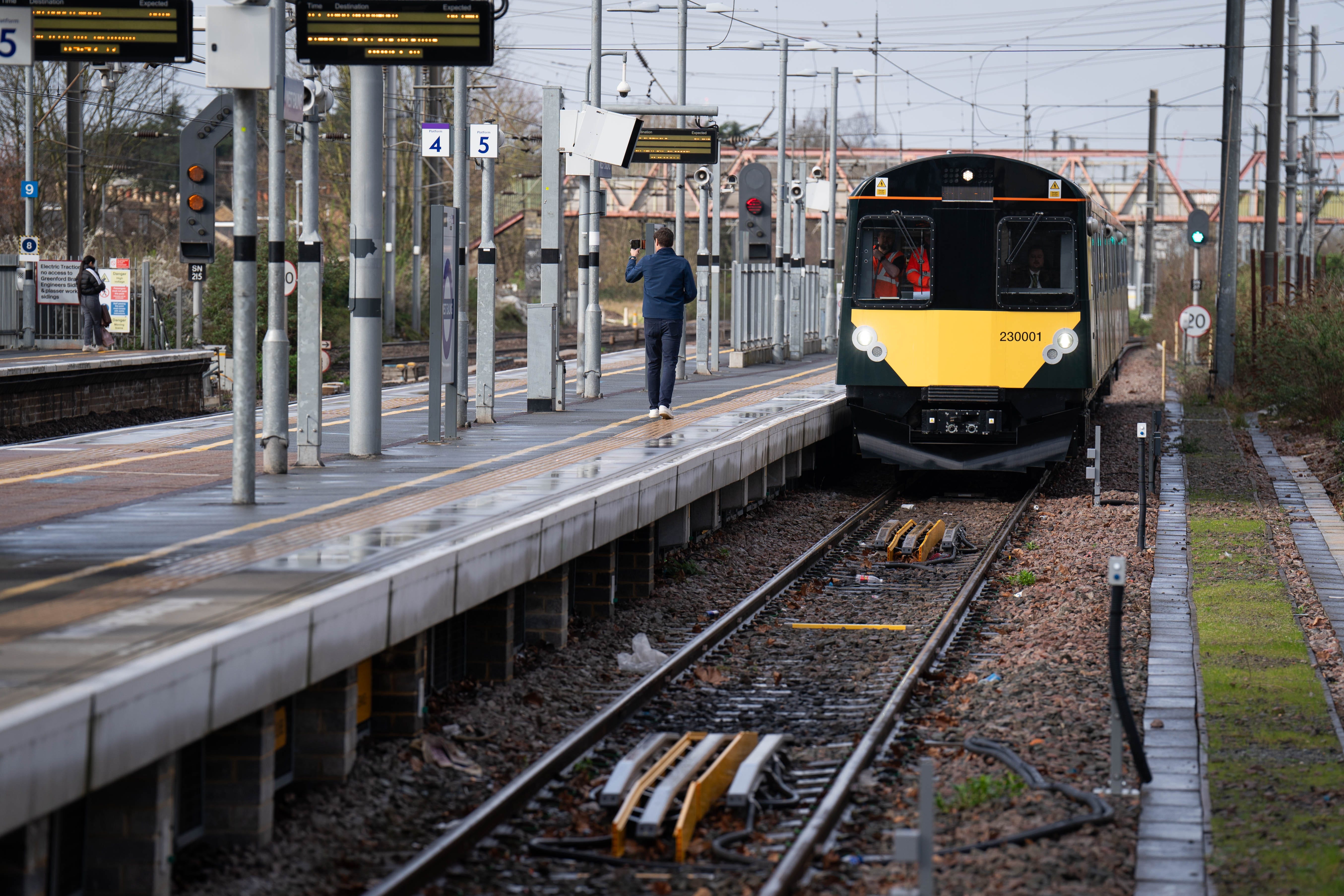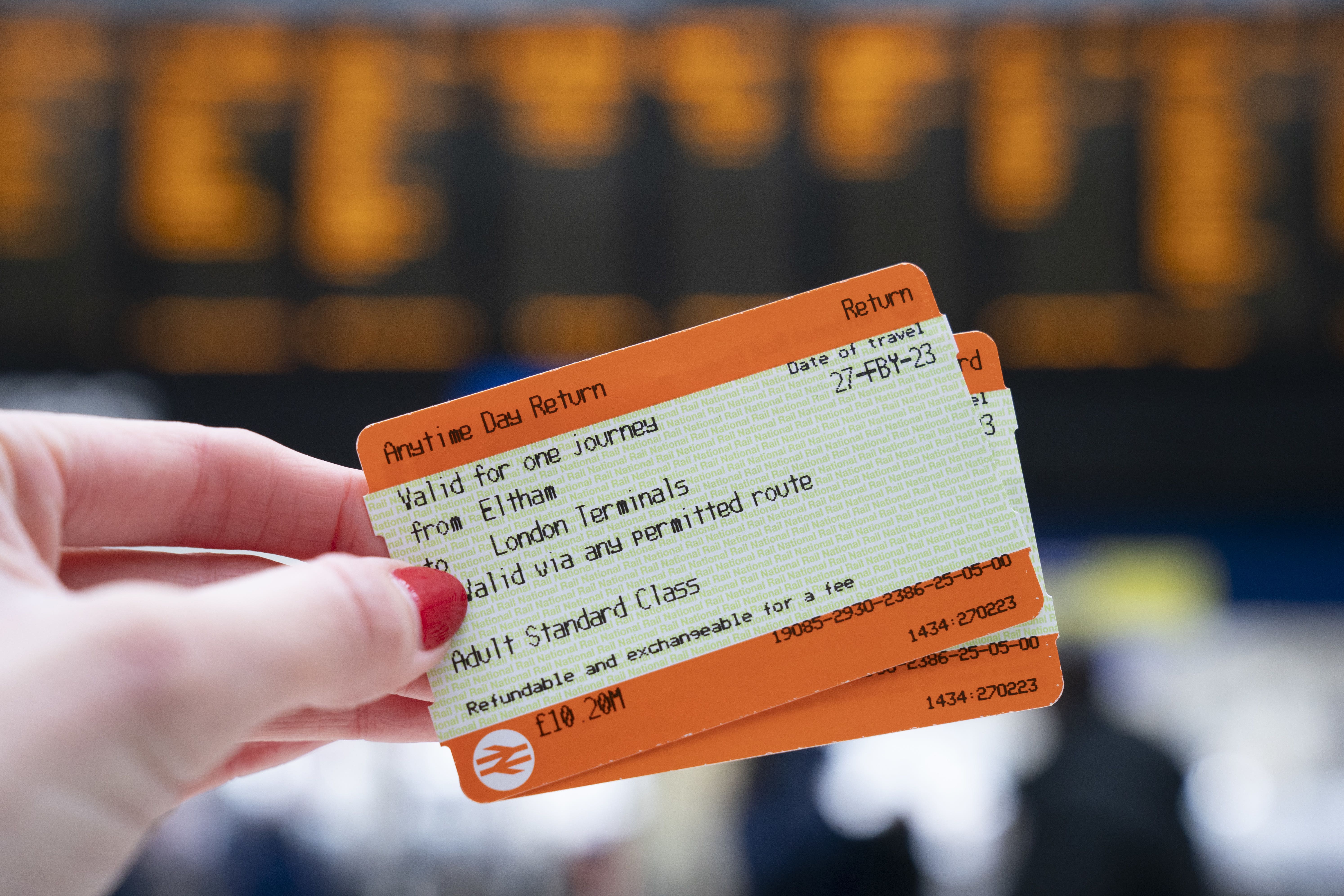Train fares and railcard price increase: What you need to know
Changes to fares will come into force next year

Your support helps us to tell the story
From reproductive rights to climate change to Big Tech, The Independent is on the ground when the story is developing. Whether it's investigating the financials of Elon Musk's pro-Trump PAC or producing our latest documentary, 'The A Word', which shines a light on the American women fighting for reproductive rights, we know how important it is to parse out the facts from the messaging.
At such a critical moment in US history, we need reporters on the ground. Your donation allows us to keep sending journalists to speak to both sides of the story.
The Independent is trusted by Americans across the entire political spectrum. And unlike many other quality news outlets, we choose not to lock Americans out of our reporting and analysis with paywalls. We believe quality journalism should be available to everyone, paid for by those who can afford it.
Your support makes all the difference.The cost of regulated train fares in England will increase by up to 4.6% next year and the price of most railcards will rise by £5, the Government announced on Wednesday.
The increase in fares is one percentage point above July’s Retail Prices Index (RPI) measure of inflation, which until 2023 was used by Westminster governments to set the cap on annual rises in regulated fares.
A Budget document published by the Treasury stated that the 4.6% rise will be “the lowest absolute increase in three years”.
Changes to fares will come into force on March 2 2025.
About 45% of fares on Britain’s railways are regulated by the Westminster, Scottish and Welsh Governments.
They include season tickets on most commuter journeys, some off-peak return tickets on long-distance routes, and flexible tickets for travel around major cities.
Train operators set rises in unregulated fares, although these are likely to be very close to changes in regulated ticket prices because the companies’ decisions are heavily influenced by governments due to contracts introduced because of the coronavirus pandemic.

Andy Bagnall, chief executive of Rail Partners, a group representing private sector rail organisations, said: “Government should set fares at a level that will ultimately encourage more people to travel by train in the future, helping to secure the long-term financial sustainability of the sector and capture the wider economic and environmental benefits of rail for the nation as a whole.
“The focus must be on growing passenger numbers, not making current passengers pay more.”
The Budget document also stated that the Government will “agree” to a £5 increase in the price of most railcards “subject to an industry proposal”.
The railcard for disabled passengers will be unchanged.
The Treasury said railcards, which generally cost £30 per year, save users an average of “up to £158” annually.
Meanwhile, the Government said it is “committing the funding required” to begin tunnelling work to bring HS2 to London Euston station, Chancellor Rachel Reeves has announced.
Ms Reeves said in her Budget speech this will encourage private investment in the area.
In October last year, then-prime minister Rishi Sunak announced that extending HS2 from Old Oak Common, in the suburbs of west London, to Euston, near the centre of the capital, was reliant on private investment.
This was aimed at saving £6.5 billion of taxpayers’ money.